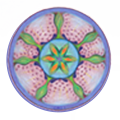Cardiovascular Health in Women
Cardiovascular (CVD), including heart disease, is under-diagnosed in women. This is because symptoms in women are often non-specific, and they develop these symptoms later than men. Sadly this has led to around 50 women in Australia suffering a heart attack every day, with around 24 women dying of heart disease daily. Sad statistics to say the least.
One of the key Principles of Naturopathy is to educate patients so disease can be prevented, or, at least, risks minimised.
Risk factors for CVD in women include gestational diabetes and hypertension in pregnancy, early menopause, depression, smoking, obesity, low physical activity, hypertension and high cholesterol.
Food as Medicine
Including foods in your daily diet like leafy greens, beetroot, high quality chocolate or cacao, berries, raw garlic, green tea, and herbs and spices like ginger and turmeric will help to reduce your risk of developing CVD.
The Mediterranean Diet is the most researched diet and probably the most recommended for managing risk factors associate with CVD. The Mediterranean Diet is mostly plant based with high amounts of vegetables and fruits and good oil eg olive oil (there is emerging research showing that as little as 20ml of good quality olive oil every day can reduce the risk of developing serious CVD).
Essential Nutrients
While there is a range of nutrients essential to cardiovascular health, perhaps the most important to women who are peri or post-menopausal is Vitamin K2.
Vitamin K2 is synthesised in the gut, by gut microbes from Vitamin K1, which is found in foods like broccoli, kale, cabbage, eggs and asparagus to name a few.
Simply put, Vitamin K2 keeps calcium in bones and out of blood vessels. Calcification of blood vessels is linked with vascular diseases like aortic stenosis.
Medicinal Herbs
There is a range of medicinal herbs that can assist with lowering cholesterol, reducing hypertension, stabilising arterial plaque, and reducing other risks associated with CVD. Which herbs are best for you will depend on factors like your overall health, which CVD you have, and your risk factors. For example, someone with elevated cholesterol would be prescribed different herbs to someone with high blood pressure.
Key Message
Eat a mostly plant based diet, manage any CVD risk factors you have, and seek professional advice when needed.


Leave a Reply